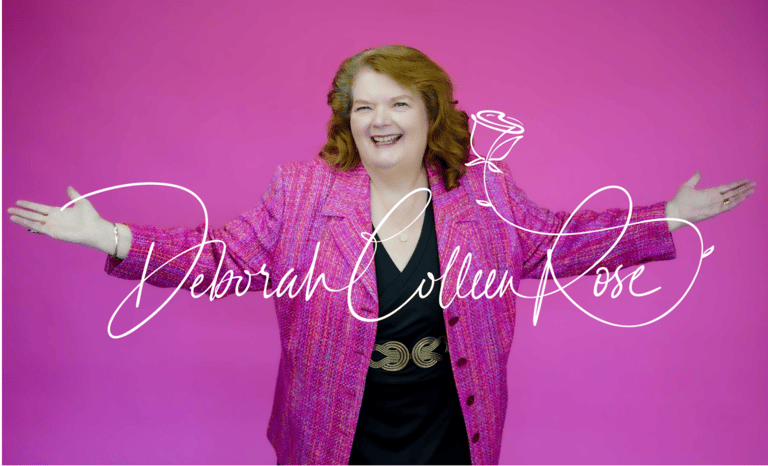When Standards Clash: When Compulsion Becomes a Diagnosis in Relationships
RELATIONSHIPS
Deborah Colleen Rose
5/30/20253 min read
When did being compelled to certain standards become a diagnosis?
That question came rumbling out of me like thunder in a clear sky. Not because I was questioning the science, but because I’ve lived it. I’ve loved people through it. I’ve hurt because of it. And maybe you have too.
Because when two people bring two different rulebooks into the same relationship—whether romantic, familial, business, or spiritual—things can get tangled. One is playing chess, the other Go. One follows every line like it’s a law of gravity; the other scribbles in the margins. And suddenly, what looked like a picnic turns into a courtroom.
Let’s break this down.
The Standard Bearers vs. the Flow Riders
Some folks are Standard Bearers. They have a rule for everything. They know the right way to load the dishwasher, answer an email, host Thanksgiving, or pray before bed. And they must do it that way—not because they’re tyrants, but because something in them won’t rest if things are “off.” Their standards are their scaffolding. Without it, things feel like they might collapse.
Others are Flow Riders. They move with intuition, preference, and mood. They believe “good enough” is good enough. They can change their mind mid-step and don't sweat the small stuff. They live in the moment and adapt with ease.
Now put those two in a relationship and watch the sparks fly.
When Standards Hurt More Than They Help
Standards are not the villain. Let’s make that clear. Standards give shape to values. They keep us safe, consistent, and purposeful.
But in relationships, unspoken standards become emotional landmines. And when a person is compelled to meet their standards—even when the situation clearly calls for compromise or grace—that’s when relationships get bruised.
Here’s how that plays out:
1. Control Masquerading as Care
One partner says, “I just want things to be done the right way.”
The other hears, “You’re not good enough unless you do it my way.”
The intention is love; the impact is shame.
2. Rigid Schedules, Flexible Souls
The Standard Bearer plans everything—meals, vacations, bedtime routines.
The Flow Rider thrives in spontaneity.
The result? Resentment on both sides. One feels unappreciated. The other feels suffocated.
3. Misplaced Morality
What’s “right” to one feels arbitrary or even absurd to the other.
The Standard Bearer might think skipping church is sinful.
The Flow Rider might think forcing it is the sin.
Neither is trying to harm. But different standards create different realities, and without curiosity, they breed conflict.
When Standards Become a Diagnosis
Enter psychology. The DSM doesn’t pathologize values. It steps in when someone is compulsively attached to their standards, even when it’s hurting them or others. That’s when you’re looking at something like Obsessive-Compulsive Personality Disorder (OCPD). (Not to be confused with OCD.)
People with OCPD often believe their way is the right way. They aren’t being stubborn; they genuinely experience anxiety when things aren’t “correct.” They often believe love equals obedience and order equals safety.
In relationships, this can manifest as:
Chronic criticism (disguised as helpfulness)
Fear of delegation or collaboration
Emotional disconnection due to overemphasis on tasks or routines
Inability to celebrate wins because perfection was not achieved
On the flip side, the Flow Rider might appear:
Irresponsible
Dismissive of consequences
Emotionally reactive rather than proactive
Untrustworthy in the eyes of their partner
Neither is wrong in their humanity. But they might be incompatible without intentional understanding and mutual adjustment.
Bridging the Gap: From Diagnosis to Dialogue
Here’s the healing path—because there is one. And it starts with humility.
1. Name the Standard
Instead of, “You never help around the house,” say,
“I realize I have a standard that the dishes are done before bed. Can we talk about how we both see that?”
2. Separate Standards from Self-Worth
If someone can’t relax unless everything is “right,” that’s not just a preference—that’s fear in disguise. Ask:
“What would happen if it didn’t get done?”
“What story are you telling yourself about me when I don’t meet your standard?”
That’s where the wound lives. Go there, gently.
3. Honor, Don’t Humiliate
This one’s big. When someone’s compelled by a standard, shaming them only makes it worse. Honor their intention, then invite a new rhythm.
“I see how much you care about doing this well. I want to meet you in the middle so we can both feel seen.”
The Real Question
So—when did being compelled to standards become a diagnosis?
When it began to hurt more than help.
When it drove love underground and let fear sit at the table instead.
When a person could no longer distinguish between doing things right and doing right by others.
But it’s not a death sentence. It’s a starting point for healing.
Because the beautiful thing about relationships is that we don’t need to live by one person’s rulebook. We get to write a new one together—one that has room for standards and spontaneity, for structure and soul.
And maybe, just maybe, that’s the standard worth striving for.
